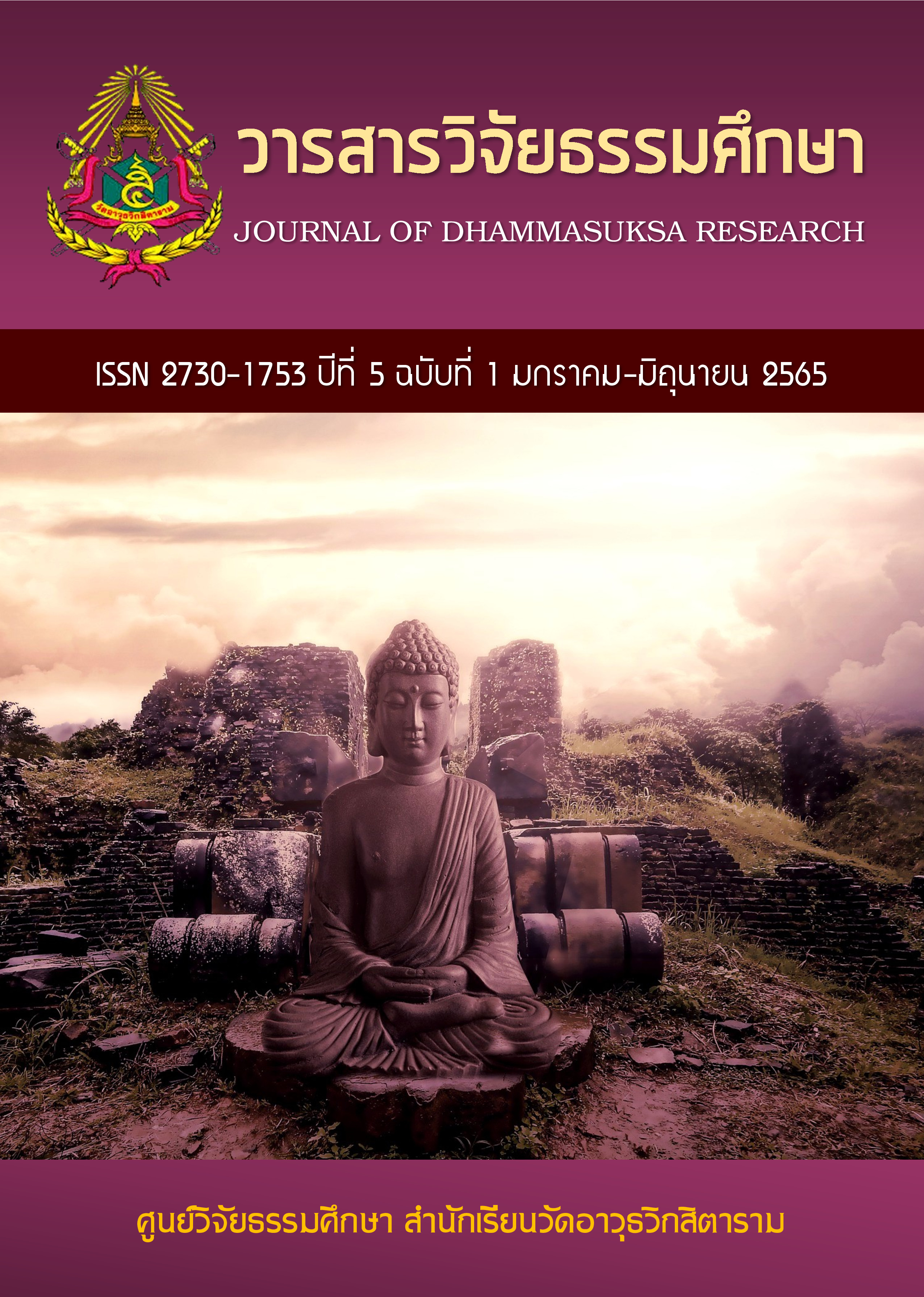God Indra DevaRaja and Postmodern Hermeneutics
Keywords:
Indra, postmodern, hermeneuticsAbstract
Objective of this research was to study and philosophical hermeneutics the Indra with post-modern philosophy paradigm and expand the meaning of Indra in the Devaraja system of Rattanakosin Kingdom with the post-modern paradigm. The research uses a philosophical approach to interpret documents and summaries. The research finding, Indra’s hermeneutics with the moderate postmodern paradigm is; 1) Aryan philosophy-based hermeneutics. Indra is derived from the Pali word "Inth", which means "the person who does greatness". This translated to: (1) Greatness means being great, doing a big thing, such as the God of the weather who causes seasonal rain, supporting life, and assisting any beings, and controlling, maintaining, and nurturing the heavens and the human world. (2) the great as the king of the devas, with the power and duty to reign over all devas, possession of the great god city and with prosperity, all of which demonstrate the great’s dignity; 2) Thai philosophy-based hermeneutics. Indra as the Thai great angel has two implications: (1) As the great angel, Indra is responsible for assisting the good in times of need. (2) the giver derived that being Indra by doing good as volunteer and bringing public prosperity to the people’s benefit. So Indra is the giver, and he does so with good intentions. It is a charitable act that benefits he recipient, such as things, public goods, and the source of the rain. Expanding the meaning of Indra could be considered in light of postmodern philosophical paradigm, which holds that the monarch as Indra, the king as his own devaraja, the almighty and sublime dhammaraja, is still the cornerstone of people’s ideas and knowledge. The new interpretation of Indra in four conceptions could be a new image of the king as the great Indra, acting good in accordance to seven virtues and performing royal duties aimed at the people’s happiness. Creating the public assets that benefited to general population. The king’s intelligence will vanish all the misfortunes much like Indra, who had come down to rescue the human realm.
References
กิตติธัช ศรีฟ้า. (2561). พระอินทร์ในบริบทสังคมไทย. วารสารศิลป์ พีระศรี. 6(1): 68-87.
กีรติ บุญเจือ. (2562). แสวงหาปรัชญาอารยันด้วยภูมิปัญญาไทย. วารสารสมาคมนักวิจัย. 24(1): 12-16.
กีรติ บุญเจือ. (2561). ปรัชญาและจริยศาสตร์เบื้องต้น. กรุงเทพฯ : มหาวิทยาลัยราชภัฎสวนสุนันทา.
ไกรฤกษ์ ศิลาคม. (2555). คุณลักษณะของผู้นำสังคมในอุดมคติตามหลักคำสอนของพระพุทธศาสนา. มนุษยศาสตร์สังคมศาสตร์. 29(3): 21-40. 145-66.
ชาตรี ประกิตนนทการ. (2558). การเมืองในสถาปัตยกรรมสมัยรัชกาลที่ 1. กรุงเทพฯ: มติชน.
ประยงค์ แสงบุราณ. (2555). ความเชื่อเรื่องพญาแถนของกลุ่มชาติพันธุ์ในสังคมกลุ่มวัฒนธรรมพื้นบ้านภาคอีสาน. มนุษยศาสตร์สังคมศาสตร์. 29(3): 21-40.
รวิช ตาแก้ว. (2558). ความหมายของคำ “ดีงาม” ในบริบทวัฒนธรรมไทย. วารสารบัณฑิตศึกษา. กรุงเทพฯ: หาวิทยาลัยราชภัฎสวนสุนันทา. 8(1): 258-272.
ศรัณย์ มะกรูดอินทร์. (2559). พระอินทร์ในคติพระพุทธศาสนานิกายเถรวาทที่พบในงานศิลปกรรมไทย. วิทยานิพนธ์ปรัชญาดุษฎีบัณฑิต, สาขาประวัติศาสตร์ศิลปะ, มหาวิทยาลัยศิลปากร.
ศานติ ภักดีคำ. (2556). พระอินทร์ : มหาเทวะผู้พิทักษ์พระพุทธศาสนาแบบอย่างแห่งจิตอาสา. กรุงเทพฯ: อมรินทร์.
สัญญา ศิริชัยวัฒนาโยธิน. (2561). การศึกษาวิเคราะห์บทบาทพระอินทร์ในนิทานชาดก. วิทยานิพนธ์พุทธศาสตร มหาบัณฑิต, บัณฑิตวิทยาลัย, มหาวิทยาลัยมหาจุฬาลงกรณราชวิทยาลัย.
สันติภาพ ชารัมย์. (2560). ความเปรียบเกี่ยวกับพระมหากษัตริย์ในกวีนิพนธ์เฉลิมพระเกียรติเรื่อง 70 สัมพัจฉร์ฉลองรัชธรรมราชา. วิวิธวรรณสาร. 1(2): 13-36.
อภิชา ชุติพงศ์พิสิฎฐ์. (2556). เทวสิทธิ์-เทวราช: แนวความคิดเกี่ยวกับกษัตริย์ในระบอบสมบูรณาญาสิทธิราชย์. วารสารสถาบันวิชาการป้องกันประเทศ. 4(1): 48-56.

Downloads
Published
How to Cite
Issue
Section
License

This work is licensed under a Creative Commons Attribution-NonCommercial-NoDerivatives 4.0 International License.


